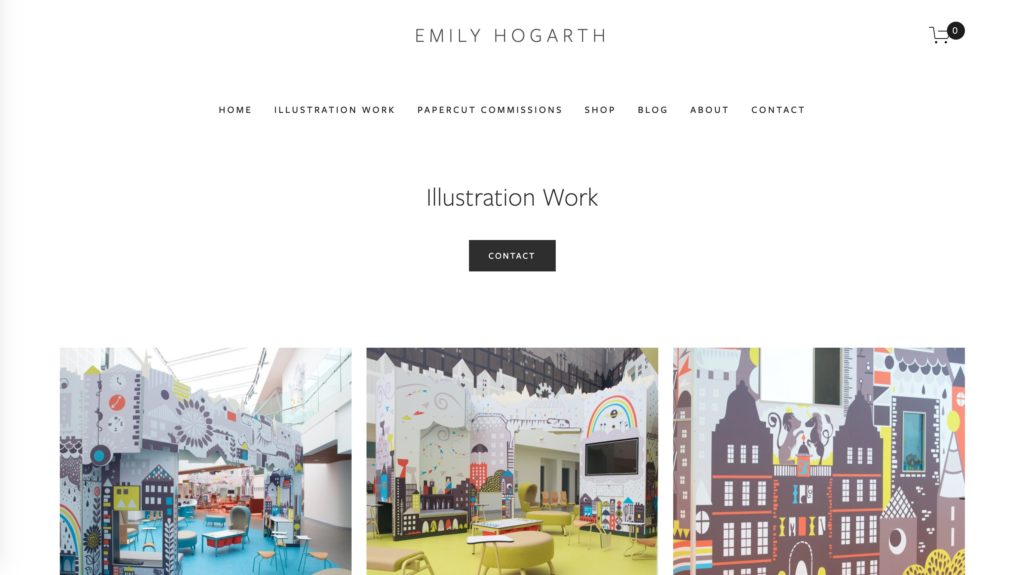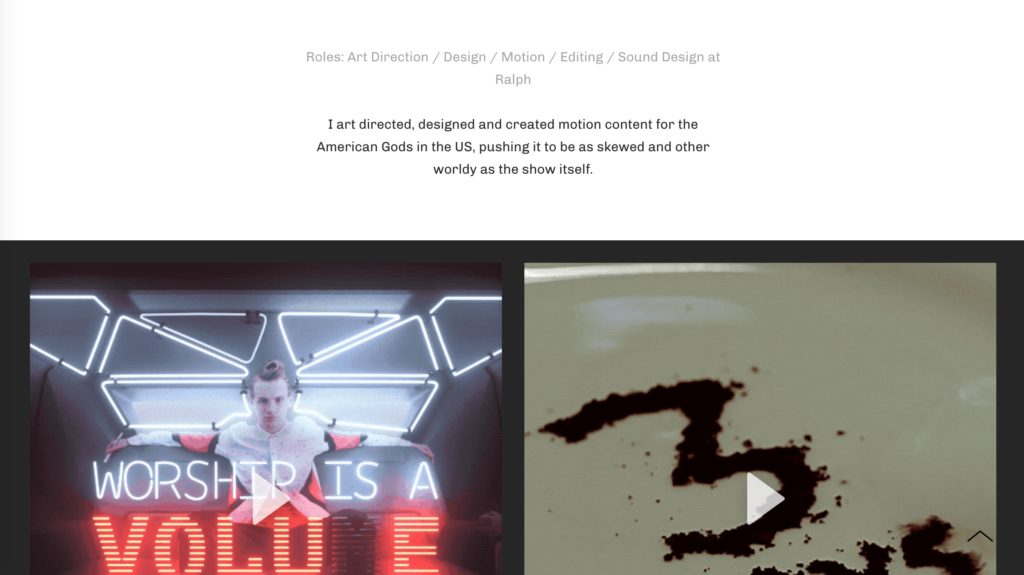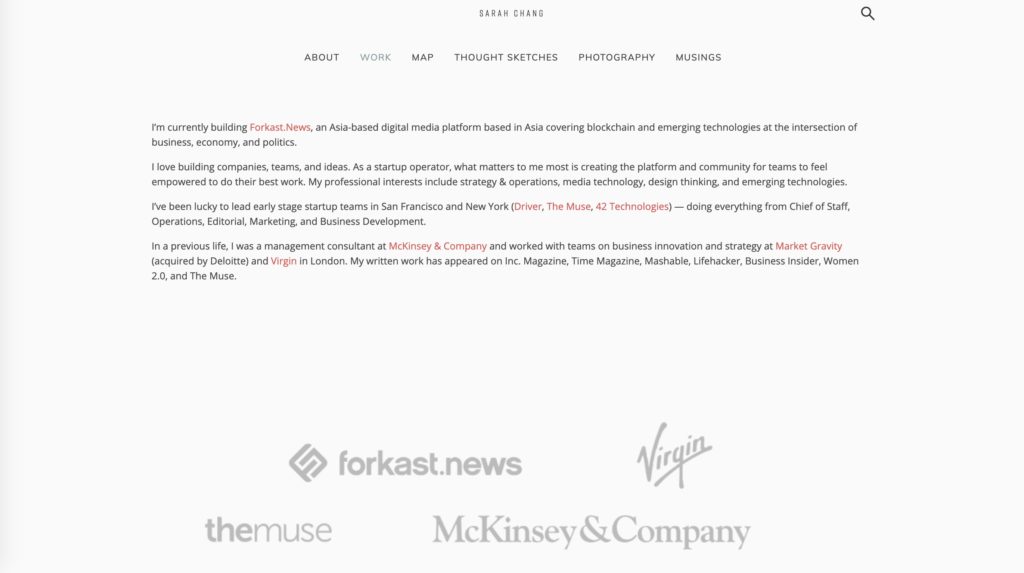3 Things You Don’t Need To Do In Your Job Search, & 3 Things You Do

This article is sponsored by Squarespace.
So many of us grew up with the notion that as long as we went to college and studied something “practical,” we’d come out on the other side with a job offer and a clear-cut path for the rest of our professional lives. But few and far between are the people I know personally who that’s actually worked out for. I’m definitely lucky — I have a fulfilling job that I love, one that even more or less uses my English degree. But it took me several years of temping, unpaid internships, and on and off periods of heavy freelancing before I found something stable that I also actually enjoyed.
And, as someone who’s now been on the other side of the job application process on more than one occasion, I have a lot more familiarity with what recruiters and hiring managers are dealing with. Here are some of the more misguided job-search tactics I’ve come across, and what you should be doing instead.
You DON’T need to: Overthink your paper resume.
I recently came across a kind of scary statistic: “Nearly 75% of resumes are rejected because they’re not correctly ATS (Applicant Tracking System)-formatted or keyword-optimized.” That means that, no matter how much effort you put into personalizing your resume, checking for typos, and including hard numbers illustrating your value to a company, you may not get an interview simply because you didn’t include the right keywords that recruiters and hiring managers are looking for.
You should do all of those things (checking the grammar, including hard numbers), but don’t over-complicate your resume. Use the right keywords so that it actually gets noticed (you can check for them with a tool like Jobscan), but remember that most hiring managers won’t spend much time actually reading your resume. Make sure to highlight your most relevant roles and accomplishments, keep it clean, keep it to one page, make sure your LinkedIn matches, and move on. You can rely on other tools to actually showcase what you can do. Which brings us to:
You DO need to: Have a portfolio website that showcases your experience so that potential employers or clients don’t have to work to learn more about you.
With pretty much all of the job search process taking place online these days, there’s no reason not to have a personal website or online portfolio that can highlight your experience, no matter what field you’re in. And with website builders like Squarespace, anyone can build a beautiful portfolio website nowadays, with no design or coding experience required — there’s no excuse not to. (We’ve tried it ourselves, even: click here to check out how TFD co-founder Lauren built her own Squarespace site in no time!)
It doesn’t have to be elaborate; in fact, it shouldn’t be. You can simply use it to consolidate and showcase your important work all in one place, and make it easy for recruiters to contact you:

Source: emilyhogarth.com
You can also include summaries of projects you’ve done — take a look at this art director’s Squarespace website:

Source: joshuamccartney.com
Even if you don’t have any sort of design or content background, Squarespace makes it easy to speak to your experience in a way that still appears thoughtfully designed and user-friendly:

Source: sarahlichang.com
Squarespace offers hundreds of design templates that you can sort by category (so whether you’re a writer, tutor, or personal trainer, they have a perfect template for your site.) You can start a free trial at Squarespace.com, and when you’re ready to publish, use our offer code “FINANCIALDIET” for 10% off your first website or domain. (We’re also hosting a *free* virtual workshop with Squarespace all about how to build your own portfolio site, which registrants can access a recording of even if they can’t attend live — click here to reserve your spot!)
You DON’Tt need to: Send a bunch of cold emails without properly researching first.
Now, I’m generally pretty amenable to offering my advice and knowledge from experience to people just starting out in the industry, especially if they know me personally or are coming through a friend or family member. But I’ve gotten a few LinkedIn messages over the last couple of years from people looking to “pick my brain” — without giving any specifications as to what they’d like to pick my brain about.
Informational interviews can be really helpful (even if they take place over the phone or via Zoom), but you never want to appear as if you feel entitled to someone’s time. If someone feels like you simply copied and pasted the same message you sent to a dozen people, they’re hardly going to be inclined to respond. You don’t want to waste your own time, either — if you’re genuinely interested in someone’s career advice, do your research and send a kind, tailored message asking for just a few minutes of their time. Read our primer on informational interviews here.
You DO need to: Look beyond job boards.
Real talk: as many as 70% of job openings never end up being listed on job boards. A lot of the time, this is because of companies hiring internal candidates. But it’s also because of recruiters and recommendations — I can’t even tell you how many people I know who got their current roles thanks to word of mouth. My husband got his job because he heard about it from a colleague who’d left his then-employer. Our engineer friend left a job to join his friend’s startup. A social worker friend of mine got a private sector job thanks to a head’s up from a former boss from her public-school role. Another friend who works in marketing left her agency to work in-house with a former client.
I could go on, because getting roles because of who you know is incredibly, increasingly common. The necessity of networking sounds limiting and intimidating, but it really doesn’t have to be. It just means getting comfortable being a tiny bit friendly with people in your industry. It’s important to remember that everyone wants to work with people they like and who are dependable (so, yes, even if you’re not leaving your current role just yet, one of the best things you can do for the future of your career is to work hard at the job you have now).
You DON’T need to: Complain about your job search on your social media accounts.
This seems like it should go without saying, but most employers (about 70%) will look at your social media profiles. And while you know that means limiting the kinds of things you share on your public profiles, make sure that extends to anything about your current job search. Employers don’t want to see you sharing post after post about how badly you need a job — they want to hire someone who is a great fit for the role they’re filling, not just desperate for any job that comes their way. I know how much the job search sucks and how disheartening it can be, especially now — but save those thoughts for the group chat.
You DO need to: Showcase and share your work on any public-facing social media accounts.
On the other hand, you should post some job-related content on your public social media profiles (even just LinkedIn). Share your successes (tastefully), or good PR about the company work for, or successful client work you’ve done. Being proud of your accomplishments is something you should learn to do for your own self-esteem, and employers want to see that, too. It’s proof that your real-world experience backs up what appears on your resume.
If you want to start building your own personal website, head to Squarespace.com for a free trial. When you’re ready to publish, you can use our offer code “FINANCIALDIET” for 10% off your first website or domain!
Image via Unsplash
Like this story? Follow The Financial Diet on Facebook, Instagram, and Twitter for daily tips and inspiration, and sign up for our email newsletter here.




